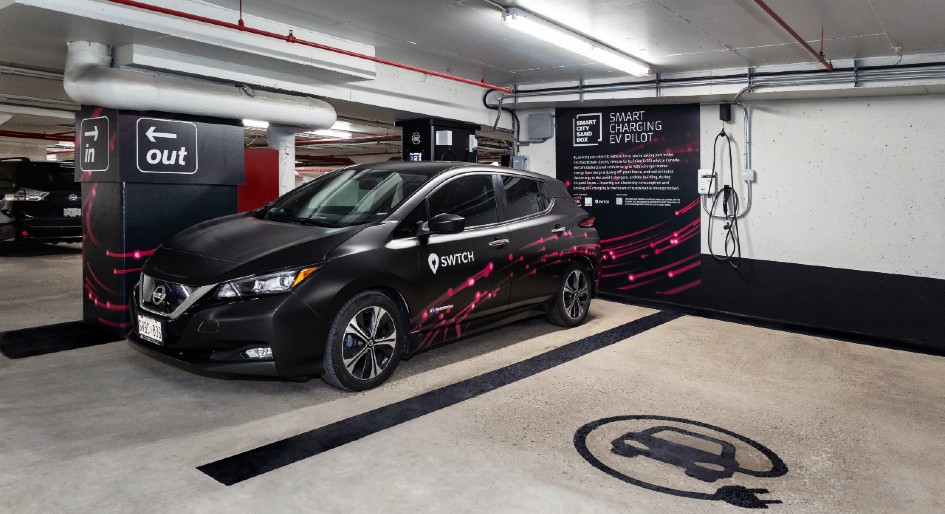A ground-breaking electric vehicle charging pilot launched this week in Toronto at the home of Smart City Sandbox, an innovation hub for the next generation of smart buildings and urban infrastructure. The three-year project will allow EV owners to charge their vehicles at low demand times throughout the day and ‘lend’ electricity to the building during high demand periods.
The overall goal is to improve EV charging accessibility in North America, address barriers to EV adoption and create an energy distribution model that benefits both building and EV owners. The clean energy pilot is a partnership between SWTCH Energy Inc. (SWTCH), tenant IBI Group, and Slate Asset Management, which owns the building at 55 St. Clair Avenue West.
“Our goal is to create places where our people and tenants thrive, and to contribute to our communities and the environment,” says Katie Fong, vice president of asset management at Slate. “Driving innovation in clean technology and finding ways to make our properties more resource-efficient is key to that objective and benefits all of our stakeholders.”
As electric vehicles gain popularity and adoption, the question of how to accommodate a rise in EV charging infrastructure without additional strain on the electrical grid becomes increasingly relevant. Vehicle-to-grid technology allows buildings to draw energy from parked EVs during on-peak hours rather than the grid. During the pilot, SWTCH operators will study its V2G charger’s ability to store energy through a parked Nissan Leaf during off-peak hours, and redistribute that energy to the building and the Level 2 EV chargers during on-peak hours.
The technology and model developed by SWTCH is unique as it includes a financial incentive for EV owners to participate in the program which leverages the blockchain. The SWTCH app tracks when energy is being drawn from a car’s battery and when it’s being charged, creating a history of credits and debits securely managed through blockchain technology that participants can monitor on their phones.
SWTCH CEO Carter Li says they aim to prove the innovative charging and energy management solution to “significantly reduce the cost of EV charging infrastructure and materially enhance grid efficiency.”







If cars power the grid during peak energy times – which is obviously daytime, then I’m assuming that the car has less power stored in the battery. If the owner needs to use the car, what if it doesn’t have enough of a charge? Also, since batteries have a finite number of times that they can be charged/discharged, isn’t the battery’s useful life reduced, perhaps significantly?